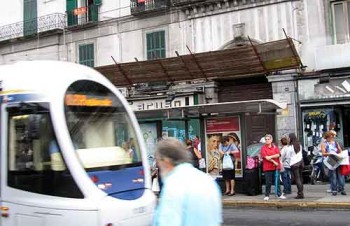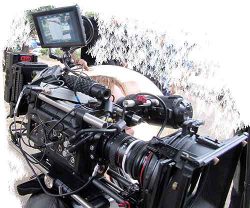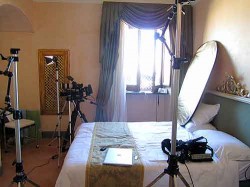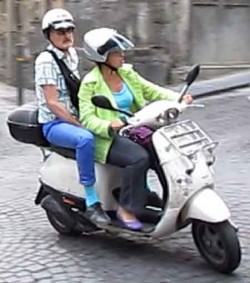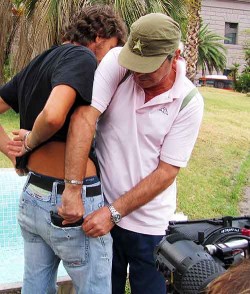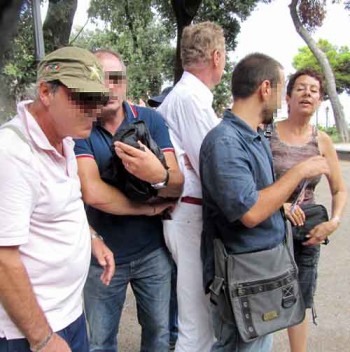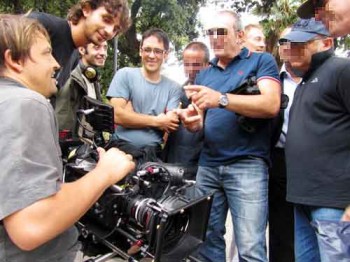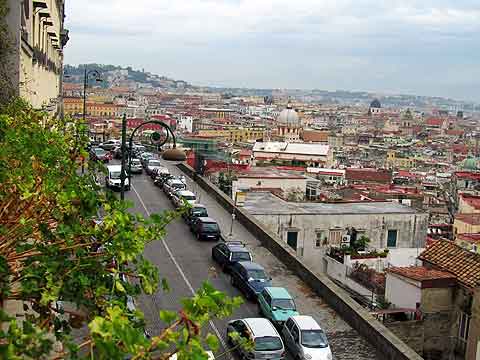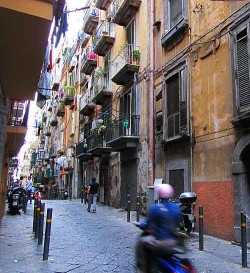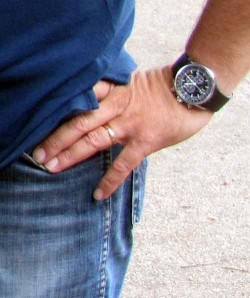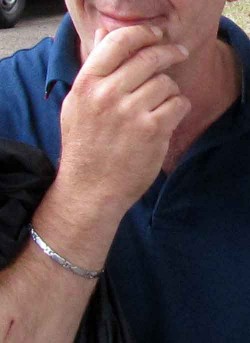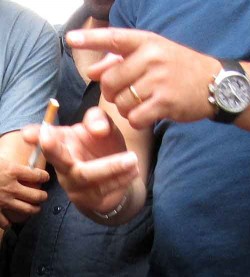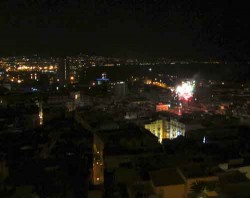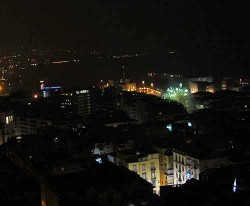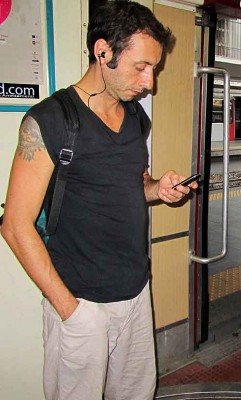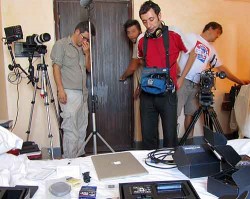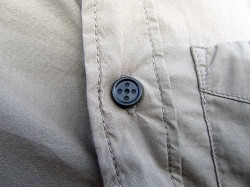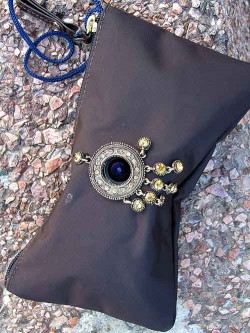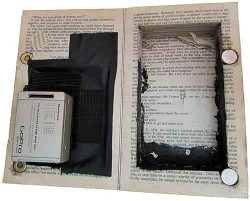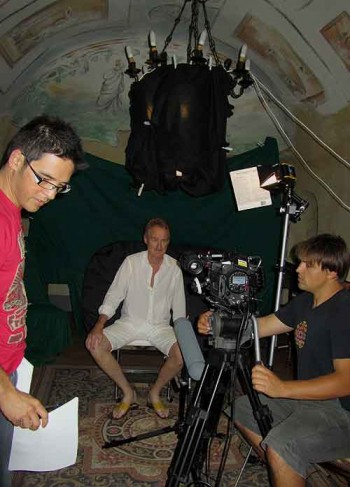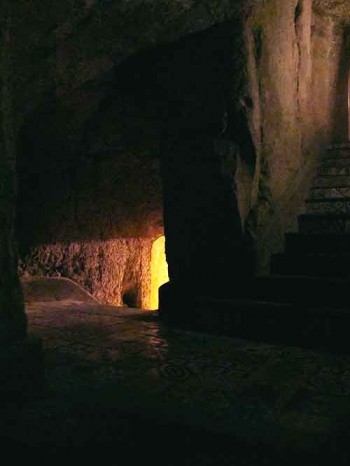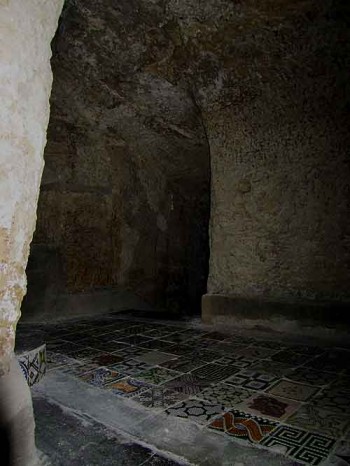
Thiefhunting, Day One, continued. Bob and I were on a high, having found a talented pickpocket team on the first bus ride of our first day of thiefhunting—in front of our film crew. Okay—in reality, the pickpockets found us. But let us credit ourselves as talented pickpocket magnets. And let it also be noted that we do not make it easy for the thieves. There’s no wallet peeking out of Bob’s pocket. His shirt covers the pocket, too.
The five of us—two pickpockets, our sound man-cum-translator Michele, Bob, and I—order coffee in a tiny bar. The thieves pay for it immediately. They’re smiling, laughing, and so are we. Michele translates with a huge grin, first nervously, then almost joyously, as he recognizes the human side of cold, heartless criminals. It’s a revelation to him, as it once was for us.
In these moments of close contact, of talk without judgment, of sharing insider talk with outsiders, we are like any strangers conversing. But no—we are more. We are intimates, because we speak of the unspeakable. We are confidantes, understanding what most do not.
As we enter the coffee bar, the gentlemen thieves step aside to let me, the only woman, enter. I’m terrified, hyper-aware of my hidden rigging: coils of wire, two boxes of electronics at my waist. These are just the sort of gallant gents who might place a hand softly on the small of my back. A move that would turn our encounter upside down. I rush past the men and their roving hands. Hands that are comfortable in other men’s pockets, in women’s purses, on the small of my back. I feel rude in the face of their chivalry.

Introductions over coffee—so civilized. Sorry, but I must now bastardize, anglicize, and fictionalize their names. For now. Frank is the clean-cut man who stole Bob’s wallet. He’s fiftyish, nicely dressed, good-looking. He’s muscular, confident, oozing testosterone; default emotion: jovial. As I said before, we’d not have suspected him for an instant were it not for his behavior on the bus.
His partner is Marc, thirtyish, short hair, light beard as dictated by fashion, big bright eyes. Marc is a bit cagey. Cautious and observant, his eyes dart around, land for an instant, keep moving. He can pick up some of our English. He can speak a little, too. But he’s nervous and confused in this unheard-of situation.
Bob is excited and wants to cement his new relationships. He tosses me his book-cam, which I now balance on my purse-cam, carefully holding the two at slightly different angles in hope of capturing the scene. And remembering not to block my button-cam with either.
Bob pulls out his iPod Touch, on which he’s loaded a gallery of thieves: pictures of pickpockets we’ve met in this city over the years. There are twenty or so faces. Bob lets the thief take the iPod in his hand. I watch, pretty certain he doesn’t intend to dart out with it. Frank slides the photos around, showing Marc, enlarging them as he pleases. He’s dumbfounded to see all his pals on Bob’s iPod. He points, laughs, doubles over, and names each one. Then he looks up at Bob, smile gone. “Which model is this?” He raises the iPod. Old model, Bob admits. “Okay, okay. I have the new one,” Frank says, and lights up again.

As Frank flips through the photos, he comes to one of Lou, another pickpocket we know in this neighborhood whom we first met in 1998. We learn that Marc is married to Lou’s daughter. They flip to a photo of Lou’s brother, Andy—Marc’s uncle. It’s a thriving family business.
Frank chuckles: “We thought we were hunting you, but you were hunting us!”
“Twenty years ago we made a good living without the tourist,” Frank tells us. “Now because of the economy, we depend on them. For that, we are sorry.” He tells us they now use a new technique, only developed about 20 years ago, because the police complained about the thefts. “We now can steal only the money from the wallet, without taking the wallet. And we don’t take all the money—we try to leave a little.”
For the most part, they don’t use stolen credit cards, either. That would raise the crime to another level. When they do steal a wallet, they bundle credit cards, ID, even photos, and drop them into a mailbox. Lou told us the same thing in 1998. Now, the police here corroborated it.
Our film crew had gathered outside the bar and are trying to get footage however they can. Marc becomes suspicious. He calls Bob on his sunglass-cam. Bob fesses up. The mood doesn’t change in the least.
Bob explains our film project to Frank and Marc. He invites them to participate, saying they’ll be shown on big screens around the world. They’ll have to sign releases. We make an appointment: tomorrow in a park.
Part one of this story. — Next installment


